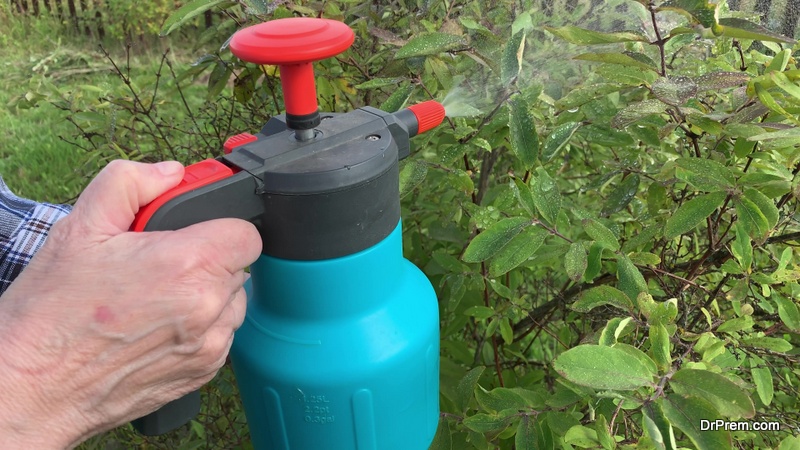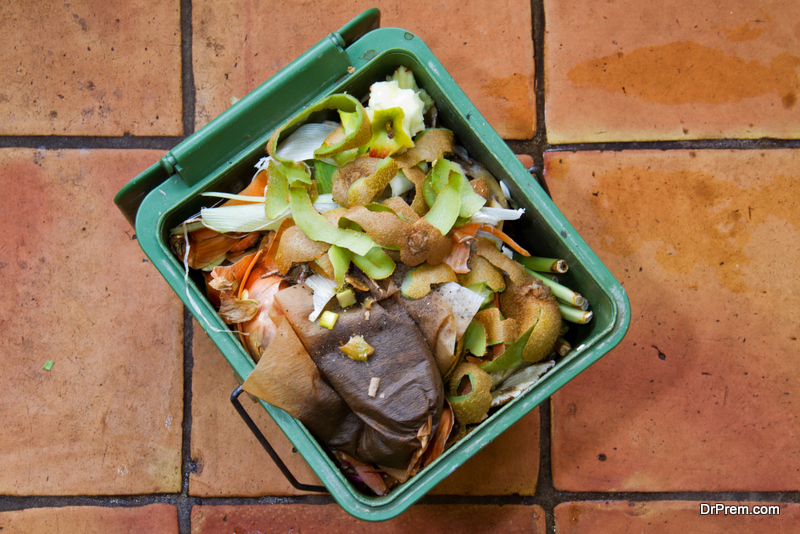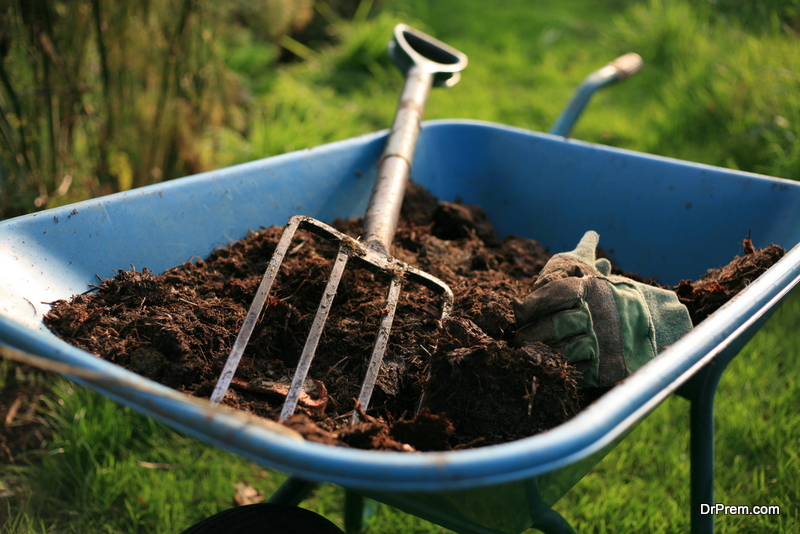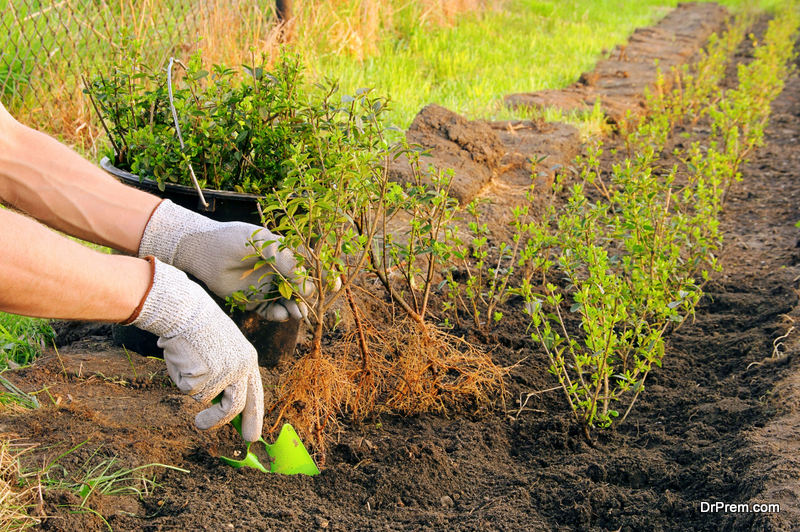Gardening, though aesthetically pleasing, can also provide numerous environmental benefits; offering the opportunity to contribute to protecting the natural world. Living more mindfully and creating an eco-friendlier garden will reap prosperity and a sense of self-achievement, and it doesn’t have to be costly either. Here are some top tips that can be easily implemented within your garden to help you on your way to living more mindfully.
1. Use natural Pesticides
 Rather than using the chemical pesticides available to purchase, consider using natural substances. Natural pesticide can be easily created within the contents of your own kitchen; a simple mixture of garlic and chilli can be spread on and around plants, the scent acts as a natural pest deterrent. Not only this, incorporating natural fragrance into your garden will encourage welcome insects, such as bees and ladybirds, further supporting the eco-system.
Rather than using the chemical pesticides available to purchase, consider using natural substances. Natural pesticide can be easily created within the contents of your own kitchen; a simple mixture of garlic and chilli can be spread on and around plants, the scent acts as a natural pest deterrent. Not only this, incorporating natural fragrance into your garden will encourage welcome insects, such as bees and ladybirds, further supporting the eco-system.
2. Grow your own vegetables
Growing your own vegetable is a great way to make the most of your garden. Not only does this process incite a positive feeling, there’s nothing quite like the pride of enjoying your own produce, it is also an effective way to make your garden eco-friendlier. Your garden doesn’t have to be large to grow-your-own, as you can plant and cultivate vegetables such as potatoes and carrots in smaller spaces too. To improve your produce further, consider investing in a greenhouse, there are many different types available, with more sustainable options such as the wooden greenhouses from GBC, proving the best options for the material-conscious.
3. Feed the birds
 Help the varying species of birds by suitably feeding them year-round. Entice them with bird feed or consider kitchen-waste options such as mild grated cheese, the fat from unsalted meat cuts, sunflower seeds or cooked potatoes. Encouraging birds to visit your garden also provides additional harmful insect pollution, furthering the natural pesticides options available.
Help the varying species of birds by suitably feeding them year-round. Entice them with bird feed or consider kitchen-waste options such as mild grated cheese, the fat from unsalted meat cuts, sunflower seeds or cooked potatoes. Encouraging birds to visit your garden also provides additional harmful insect pollution, furthering the natural pesticides options available.
4. Use a Water Butt
Installing a water butt in your home is an efficient way to reduce wasting water. Watering any garden, inclusive of crops and plants, can quickly result in high water consumption. A water butt or rainwater collection system helps to collect rainwater from your shed or roof which you can then use to dispense around your garden.
5. Make your own compost
 Making your own compost is a fantastic resource for reducing household waste and supporting plant and crop growth within your eco-garden.Katie Bayliss, Marketing Co-ordinator at GBC Group says, “Composting is an important part of any eco-friendly garden, it’s an easy and low-cost means of disposing of household waste whilst simultaneously creating natural nutrients for the surrounding soil. By investing time into composting, you’re able to tend to your garden in a completely self-sufficient way.” A compost heap can be comprised from everything including leaves and paper to coffee and tea, as well as all organic food waste. The resulting compost will leave your plants with healthy, nutrient-rich soil.
Making your own compost is a fantastic resource for reducing household waste and supporting plant and crop growth within your eco-garden.Katie Bayliss, Marketing Co-ordinator at GBC Group says, “Composting is an important part of any eco-friendly garden, it’s an easy and low-cost means of disposing of household waste whilst simultaneously creating natural nutrients for the surrounding soil. By investing time into composting, you’re able to tend to your garden in a completely self-sufficient way.” A compost heap can be comprised from everything including leaves and paper to coffee and tea, as well as all organic food waste. The resulting compost will leave your plants with healthy, nutrient-rich soil.
6. Consider Hedges
Planting hedges as an alterative to a wall or fence is an environmentally friendly approach to living more mindfully. Hedges are great for wildlife encouragement as they provide food and shelter, they also make ideal nesting sites and offer protection from predators. Having a hedge canalso capture pollution and is able to reduce noise and decrease the chance of flooding.
Article Submitted By Community Writer




